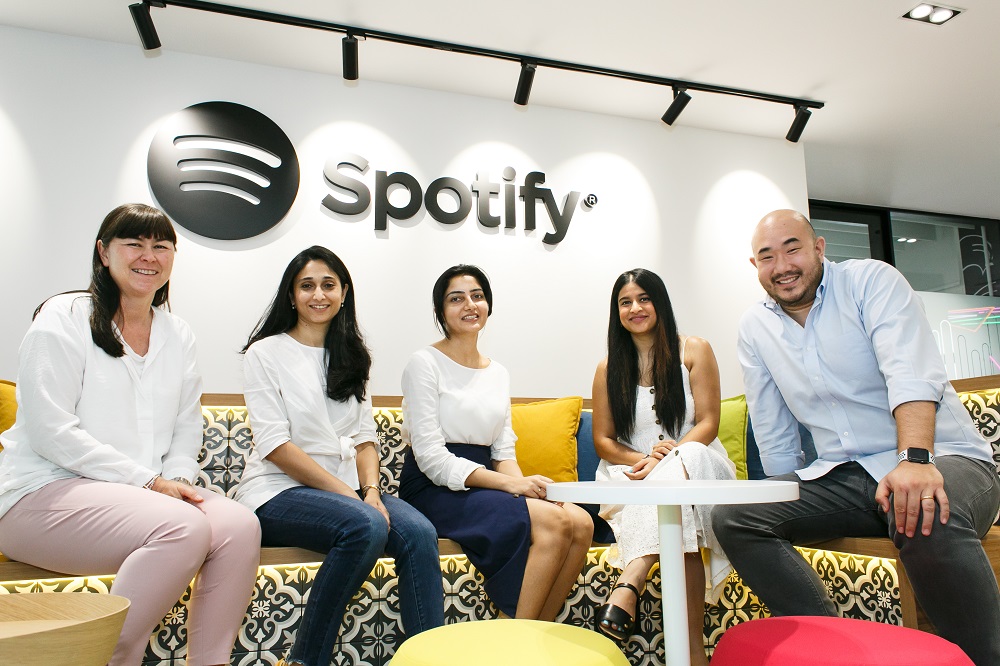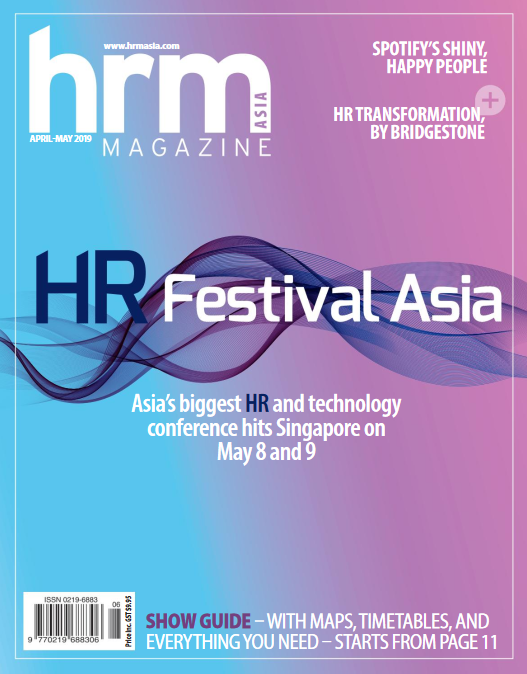HR Insider Exclusive: Spotify’s shiny happy people
HR Insider shines a spotlight on the “people behind the people” – namely, the talent teams supporting the region’s most successful organisations. Check out previous HR Insider stories here.

Spotify’s offices in Singapore are located in the city – in the middle of a square formed by key commuter train hubs – but they are most definitely not within the dense skyscraper arrays that make up the central business district. Rather, the offices take up a few floors of an old-school Singaporean shop house; nestled in a neat, sleepy line of such buildings that are, in the words of U2, “faraway, so close” from the frenetic hustle and bustle.
As non-descript as the premises are on the outside, the inside is the complete opposite: colourful, hip, and comfortable. Crisp sunlight streams through the windows, lighting up the splashes of bright yellows, blues, and reds around the room, and the floors are covered in a mixture of textures from hipster concrete to plush fabric. Music is a subtle but vital presence: amplifiers double up as coffee tables in little nooks, guitars decorate the walls, and a staircase in the corner leads up to a dedicated jamming space.
In its own way, the space is a perfect manifestation of Spotify as a brand which aims to have its finger firmly on the pulse of what’s hot and current – but one that is nonetheless intent on doing things its own way. Even though it has the cultural heft to stand shoulder-to-shoulder with Silicon Valley giants like Facebook and Google, the company’s Swedish origins and millennial-dominated outlook (among employees and customers alike) set it apart.
“[CEO and co-founder] Daniel Ek’s values as a Swedish national shaped our company culture,” says Michael Kim, the company’s Head of HR in the Asia-Pacific. “It’s driven based on a philosophy of doing what’s best for the company, and that translates in Spotify to doing what’s best for our people.”
For his HR team, on a day-to-day basis, that means anchoring themselves by always asking: ‘Does this make sense for our people? Is this in the best interest of our people?”
“We don’t look much at what external competitors are doing. We are a unique brand and business, with unique values. We as an HR team need to constantly keep up with our own growth and change, but do it the Spotify way,” says Kim.
A mindset for hyper-growth
A key aim of the company’s talent strategy is to keep employees challenged and engaged – so that they stick around first of all, but also to ensure that they are agile enough to keep up with a technology landscape that is constantly under siege from disruptive forces.
“When you’re working in a hypergrowth company, the landscape is changing all the time. Speed is a really big factor and value at Spotify. I don’t think Spotify would exist today if we, and our founder, didn’t have that growth mindset,” notes Kim.
At Spotify, this “growth mindset” means that any challenge can be overcome through dedication, resilience, and hard work.
It means experientially learning on the job; it means learning from and with peers; and it means creating an open environment where people are empowered to be accountable for their own development and career growth.
It also means a talent philosophy that isn’t interested in performance management, but rather, in performance development.
Traditional appraisal processes and distribution curves are out. Instead, employees organically receive honest, constructive feedback on an ongoing basis throughout the year.
“We don’t force people into buckets of performance, because at the end of the day, all humans are wired differently,” says Kim.
Performance improvement plans are also persona non-grata.
“A lot of the research shows that managers who use them have already made up their mind that the employee is going to be terminated,” says Kim. “In my experience, they are often just used for legal purposes, as a last step to validate that a person should be shown the door. That, to me, is a manager having a fixed mindset.”

This story first appeared in the April-May issue of HRM Magazine Asia. Read it here.
Instead, Spotify urges its managers to troubleshoot: Why is this employee struggling? What are their weaknesses and strengths? Are they in the right role?
“If you think about the war for talent and how competitive it is out there and how much time we’ve put into investing and growing our people… what a waste to just throw that all out. So if you can just tweak or pivot a struggling employee’s role to be focused more on their strengths versus their weaknesses, you’re going to turn a bottom performer into a top performer,” Kim says.
“I’ve never got so many of these calls before, where managers come back to me saying that their underperforming employee is now performing really well after having honest feedback sessions and investing in their development. Every other company I’ve worked for, 90% of the time it’d be like, ‘remember my underperforming employee? We’d like to move forward with termination’.
“We prefer to give it time, patience, and empathy; to take a more humane approach. And it works,” he adds.
Check out Part Two of our exclusive HR Insider story with Spotify, right here: Happy employees make better employees at Spotify




